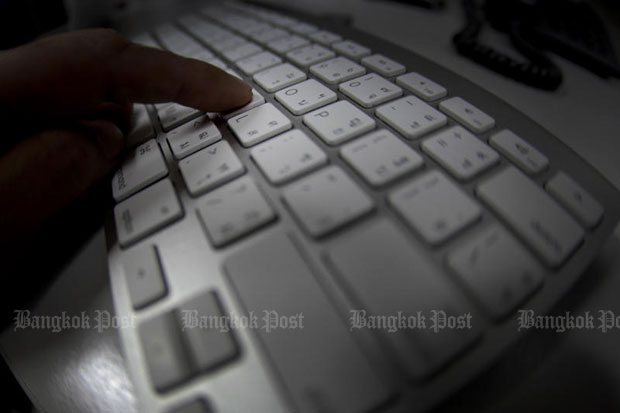
About 10 accounts on social media platforms are being monitored for suspicion of generating and sharing fake news that could affect the public, says Buddhipongse Punnakanta, minister of Digital Economy and Society (DE).
"The DE Ministry is working with related agencies, including the Technology Crime Suppression Division (TCSD), before taking legal action against them," Mr Buddhipongse said, adding either the Cybersecurity Act or Computer Crime Act would be used to deal with them.
Deputy Prime Minister Prawit Wongsuwon, who visited the DE Ministry on Monday, insisted the anti-fake news centre would take shape in the next two months.
Gen Prawit said fake news has taken a toll on national security, society and the economy over the past several years.
He insisted the government's efforts to counter fake news are not meant to take aim at the administration's opponents.
"You don't have to be worried about any ill intention behind the planned anti-fake news centre," said Gen Prawit. "If you were me, what would you feel when you have been affected by fake news for four or five years through social media platforms."
The deputy premier was speaking after meeting with Mr Buddhipongse and DE Ministry officials to follow up on the ministry's operations and policy delivery.
Gen Prawit said he fully supports the establishment of the anti-fake news centre as false online information is having a broad effect on the public. False information is spread in many fields, such as disaster warnings, weather forecasts, government policy or rumours about important people, the deputy premier noted.
He also urged related agencies to work together to deal with fake news and make use of innovative technology, including big data analytics and artificial intelligence.
Mr Buddhipongse explained three steps for the anti-fake news centre to counter false information.
First, the DE ministry and related agencies need to monitor and be aware of fake information on the internet and social media. They can be notified about fake information by people via the ministry's website and Line Official Account.
Second, affected agencies have to provide correct information or alternative information in response to online rumour for public consideration, he said, adding there is no need for the government to deal with every piece of news online but only information that could have an impact on security issues.
Last, the anti-fake news centre would have to release the correct information or another side of the story to counter fake news or rumours through every channel with signs indicating the information has been verified by the government, Mr Buddhiponge said.
Last week, the ministry appointed a 25-member committee to combat fake news. The panel comprises high-ranking officers from the DE Ministry and other agencies.
The committee, chaired by the DE minister, will be responsible for planning, monitoring, analysing and verifying information published via the internet and social media platforms.
It will also analyse trends and the effects of online information and cooperate with related agencies to clarify and release facts countering fake content.
Mr Buddhiponge also discussed the ministry's project to install free WiFi hotspots in remote areas, known as the Net Pracharat project.
Although 24,700 villages have seen WiFi hotspots installed, more areas need to be equipped with hotspots in order to serve communities.